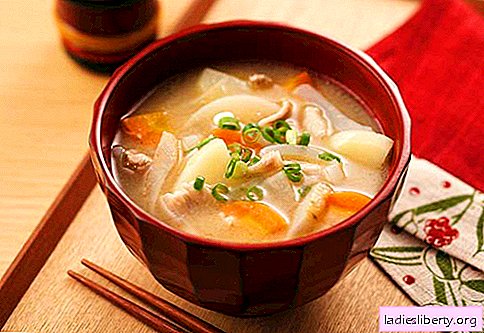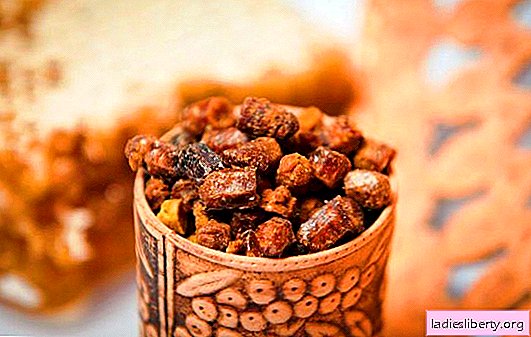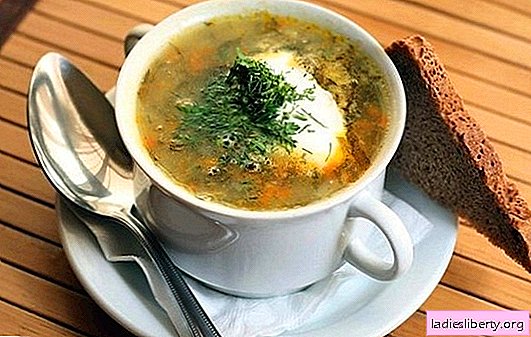
How to eat properly, using only those products that do not harm the child, but at the same time have a varied diet? Many nursing mothers face this dilemma.
It would also be nice to lose weight gained during pregnancy and regain its former shape. But you can’t strictly limit the number of calories in this period. The decision will be the rules of diet for lactating women.
General principles of a nursing diet
A balanced diet that will allow a nursing mother to provide a full-fledged baby with nutritious nutrition, while at the same time smoothly parting with extra pounds, is built on permitted products. If used properly, you can get the most out of it.
First of all, you should forget about the notorious "eat for two." While a woman is carrying a baby, her body is already making stockpiles of nutrients needed for lactation. Therefore, the main emphasis is not on the volume of nutrition, but on its quality filling. One of the main rules follows from this - do not overeat. But it is impossible to limit oneself in food to exhaustion. Not more than 2500 calories daily, but not less than 1800 - this is the permissible fluctuation in the calorie intake of a nursing woman. At the same time, consuming up to 2200 calories per day, most mothers do not gain excess weight during lactation.
Secondly, you should remove from the diet those products that can provoke colic in a newborn baby. This problem usually torments babies up to 3-4 months. Therefore, everything that causes increased gas formation in the intestines is forbidden for lactating women.
These are products such as:
• legumes: lentils, beans, peas, beans;
• black bread;
• whole cow's milk;
• raw vegetables (especially cabbage, beets, tomatoes, cucumbers);
• foods with a lot of sugar in the composition;
• rich pastries, fat cream;
• grapes;
• carbonated drinks.
Also strictly prohibited foods that irritate the stomach:
• mayonnaise;
• hot sauces;
• mustard;
• pickles, pickled vegetables, sauerkraut;
• fast food.
Strongly excluded alcohol. Coffee and strong tea are undesirable. In addition, potential allergens that could harm the baby should be avoided. It:
• chocolate, especially white or milk;
• shrimp;
• most brightly colored (orange or red) berries and fruits: all citruses, strawberries, raspberries, exotic fruits;
• nuts;
• honey.
The third rule. It is desirable to eat fractionally and often enough. There should be five to six meals a day, about 300 grams of food should be eaten at a time. And it’s best to eat the last time 4 hours before bedtime. Such a diet will help speed up the metabolism and will have a good effect on both lactation and the figure.
Fourth, a nursing mother needs to drink a lot of water - simple, not carbonated. Up to 3 liters per day. It is very good to drink before feeding the baby.
And fifth - There should be enough protein in the diet. Moreover, mainly of animal origin. No less than 100 grams of protein food daily - this is the necessary minimum.
Rules for making a diet on a nursing diet
The menu includes the following product groups:
1. Meat. It can be chicken, turkey, rabbit, beef or veal. The main thing is to choose low-fat varieties.
2. Milk products. It is best if it is a sour milk (fermented baked milk, natural yogurt, kefir), and not whole cow's milk. It can cause an allergic reaction in the baby. Cottage cheese and cheese are also allowed - they will become an additional source of proteins. Preferably, the dairy products are thermally processed - casserole, cheesecakes.
3. Low-fat boiled white fish. It can be included in the menu no more than once or twice a week.
4. The eggs. Introduced with caution. You should observe the reaction of the baby's body - in some babies this product can cause allergies. Permissible - two to three eggs per week.
5. Vegetables. Fruits (excluding potential allergens). These are vitamins and fiber. It is advisable to eat vegetables not in raw, but in boiled or baked form. Especially in the first months of the baby's life. Of fruits, the best option is baked green apples.
6. Cereals, bread. The exception is pea porridge, too heavy millet. It is also undesirable to eat muffin and fresh white bread, better yesterday.
Dishes are best prepared by cooking, stewing, baking, steaming. Frying should be avoided. Spices, onions, garlic in this period are not desirable, they can change the taste of breast milk. You also need to abandon smoked and salted, fatty, canned foods and convenience foods.
Daily should be included in the menu:
• meat, fish - 200 g;
• porridge - up to 300 g;
• vegetables - up to 500 g;
• fruits - up to 300 g;
• cottage cheese -150 g;
• butter - 20g;
• vegetable oil - 25g;
• cheese - 30 g.
Forced Nursing Diets
The main argument for or against any product in the diet of a nursing mother is the health of the child. If the baby has problems, the woman has to adhere to a special diet. So, with intolerance to cow's milk, a dairy-free feeding system is indicated. As the name suggests, it excludes dairy products.
The most stringent is a hypoallergenic diet for nursing. When it is needed:
• The first month of a child’s life, while his digestive system gets used to nutrition. With any allergic reaction, a transition to a hypoallergenic diet.
• Digestive diseases, intolerance to any nutritional components.
• The presence of allergies in the immediate family, which increases the risk of an allergic reaction in the baby.
What is forbidden:
• eggs;
• mushrooms;
• seeds and nuts;
• cocoa;
• citruses;
• fish caviar;
• honey;
• all vegetables, fruits, berries of red or orange color;
In some cases, wheat flour and products made from it, as well as chicken, can be subject to a restriction - an allergy is also possible on it. From porridge banned semolina. In the stop list - fatty varieties of fish and meat.
What can be:
• low-fat fish;
• turkey breast, boiled beef;
• cereals: rice, buckwheat, oatmeal, corn;
• vegetable broth;
• dried fruits and compotes from them;
• apples (green), pears, bananas;
• oil (vegetable, butter);
• potatoes, zucchini, cauliflower, squash, broccoli;
• weak tea (black, green);
• dairy products (low-fat).
Sample menu for the day:
Breakfast. Oatmeal porridge with green apple and butter.
Lunch. Green tea. Low-fat cheese (a small slice).
Dinner. Vegetable soup. A piece of boiled beef.
An afternoon snack. Kefir.
Dinner. Vegetable stew. Steam cutlet. An Apple.
By the way, a hypoallergenic diet is not only beneficial for the baby's health. A nursing mother with such a nutrition system can lose up to 10 extra pounds in two months.
Diet for nursing: how to lose weight correctly
It is important to remember - sharp restrictions on food, a radical change in diet during lactation are undesirable. In the first months after the birth of the baby, you should not try to lose weight at all - the feeding process has not yet been debugged, any change in the composition of breast milk can adversely affect the baby, and the hormonal background of the mother has not yet returned to normal.
The best diet for losing weight of a nursing woman will not be a rigid system of restrictions, but proper nutrition. The diet must be daily:
• 500 g of carbohydrate food;
• 150 g protein;
• 100 g of fat.
Vitamins and minerals are best obtained from nutritional components. But with the permission of the doctor, it is also permissible to take vitamin complexes. Indeed, the lack of certain elements, for example, B-group vitamins, can lead to the development of depression, a hemoglobin deficiency is fraught with a breakdown. And, as you know, in this state, women tend to seize up fatigue and stress and, as a result, gain excess weight. Additionally, you can make vitamin smoothies, smoothies. They will also help to snack and reduce hunger. A light meal is better than an animal appetite in anticipation of lunch or dinner, when it will be difficult to stay within a normal serving of food.
The right menu for the day for a nursing mother might look like this:
In the morning, after waking up: a glass of kefir.
Breakfast: a portion of porridge or casseroles of low-fat cottage cheese.
Second breakfast: baked apple.
Lunch: broth or soup, fish and vegetables, baked in the oven, or boiled beef with buckwheat.
Snack: a cheese sandwich, compote.
Dinner: stewed vegetables with a slice of turkey or chicken.
It is important to add at least minimal physical activity to such a diet. This will improve well-being, and the figure will benefit.











